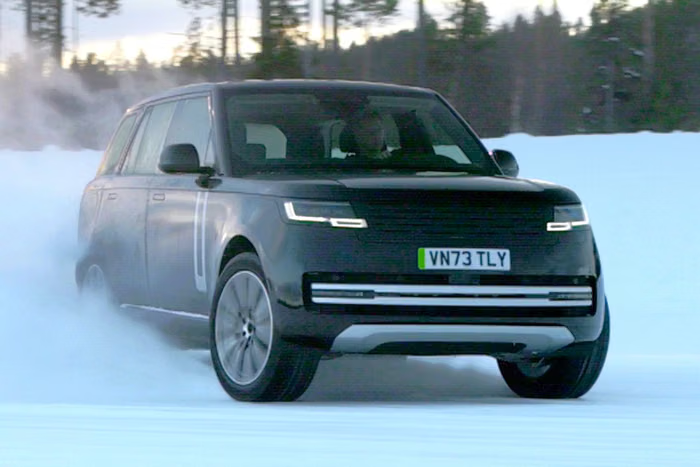Range Rover, one of the most luxurious and iconic car brands in the world, had earlier planned to launch its first all-electric SUV in 2024. However, there is some disappointing news for car lovers and Range Rover fans. The launch of the new Range Rover Electric has been delayed. Now, it is expected to arrive in 2026.
This delay has raised many questions among customers, car experts, and electric vehicle (EV) followers. Let’s take a closer look at why the launch is delayed, what features are expected, and what this means for the future of Range Rover and electric SUVs.
Reason for the Delay
Jaguar Land Rover (JLR), the parent company of Range Rover, has shared that the electric Range Rover is not cancelled, only delayed. The company said that they are working hard to make sure the new EV is perfect in every way before it reaches the customers.
Here are a few possible reasons for the delay:
- Battery Supply Issues: EVs depend on high-quality batteries. There have been problems in the global supply of EV batteries, which may be causing the delay.
- Software Development: The Range Rover Electric is expected to come with advanced software systems. Developing these systems takes time and testing to ensure safety and performance.
- Testing and Quality Control: JLR wants the electric version to offer the same comfort, off-road ability, and luxury as its petrol and diesel models. So, it needs longer testing time.
- New Platform: The Range Rover Electric will be built on a special platform designed for EVs. Making and testing a brand-new platform takes more time than using an existing one.
What We Know So Far About the Range Rover Electric
Even though the launch has been pushed to 2026, the company has revealed some interesting details about the upcoming electric SUV. It is being called one of the most advanced and luxurious electric SUVs ever built.
Let’s look at the expected features:
Overview Table: Expected Features of Range Rover Electric
| Feature | Details |
| Launch Year | 2026 (Delayed from 2024) |
| Battery Range | Around 500-600 km on a full charge (Expected) |
| Top Speed | Likely to be over 200 km/h |
| 0-100 km/h Acceleration | Under 5 seconds (Expected) |
| Charging Time | Fast-charging support, 80% in about 30 minutes |
| Drive Type | All-Wheel Drive (AWD) |
| Platform | MLA (Modular Longitudinal Architecture) EV platform |
| Interior | Premium, luxurious with latest tech and AI systems |
| Price | Expected above ₹1.5 Crore (India), $120,000 (Global) |
Design and Interior
Range Rover Electric is expected to carry the same classy design that Range Rover is famous for – bold, boxy look, large wheels, and a high-end finish. But it will have a few new details to give it a modern EV appearance, like a closed-off front grille, sleek headlights, and special EV alloy wheels.
Inside, it will come with premium leather (or vegan material), touchscreen displays, voice commands, and a smart driving system. The focus will be on offering maximum comfort, luxury, and latest technology.
Performance and Range
The Range Rover Electric is being designed for both city roads and tough off-road terrains. With All-Wheel Drive, it will be powerful enough to climb hills, go through snow, and handle difficult roads.
It is expected to offer over 500 km of driving range on a single charge. Fast-charging options will also be available, allowing the battery to charge up to 80% in around 30 minutes.
Software and Safety
JLR is working on a new in-house operating system for their EVs. This system will control everything from navigation and entertainment to vehicle safety and energy management. Over-the-air (OTA) software updates will be available, just like smartphones.
Safety features like lane assist, emergency braking, blind-spot monitor, and 360-degree cameras will likely be standard.
What This Delay Means for Buyers
For those who were waiting to buy the Range Rover Electric in 2024 or 2025, the delay is surely frustrating. But at the same time, it shows that the company is not rushing the launch and is taking the time to deliver a perfect, safe, and high-performing electric SUV.
With many luxury EVs already in the market like the BMW iX, Mercedes EQS SUV, and Audi Q8 e-tron, the Range Rover Electric will face tough competition. But Range Rover believes their EV will stand out for its design, power, off-road ability, and luxury.
Conclusion
The Range Rover Electric launch delay to 2026 may be a bit disappointing for fans, but it could also be a blessing in disguise. The company is focusing on quality over speed, and that’s a good thing when it comes to such an important new product.






